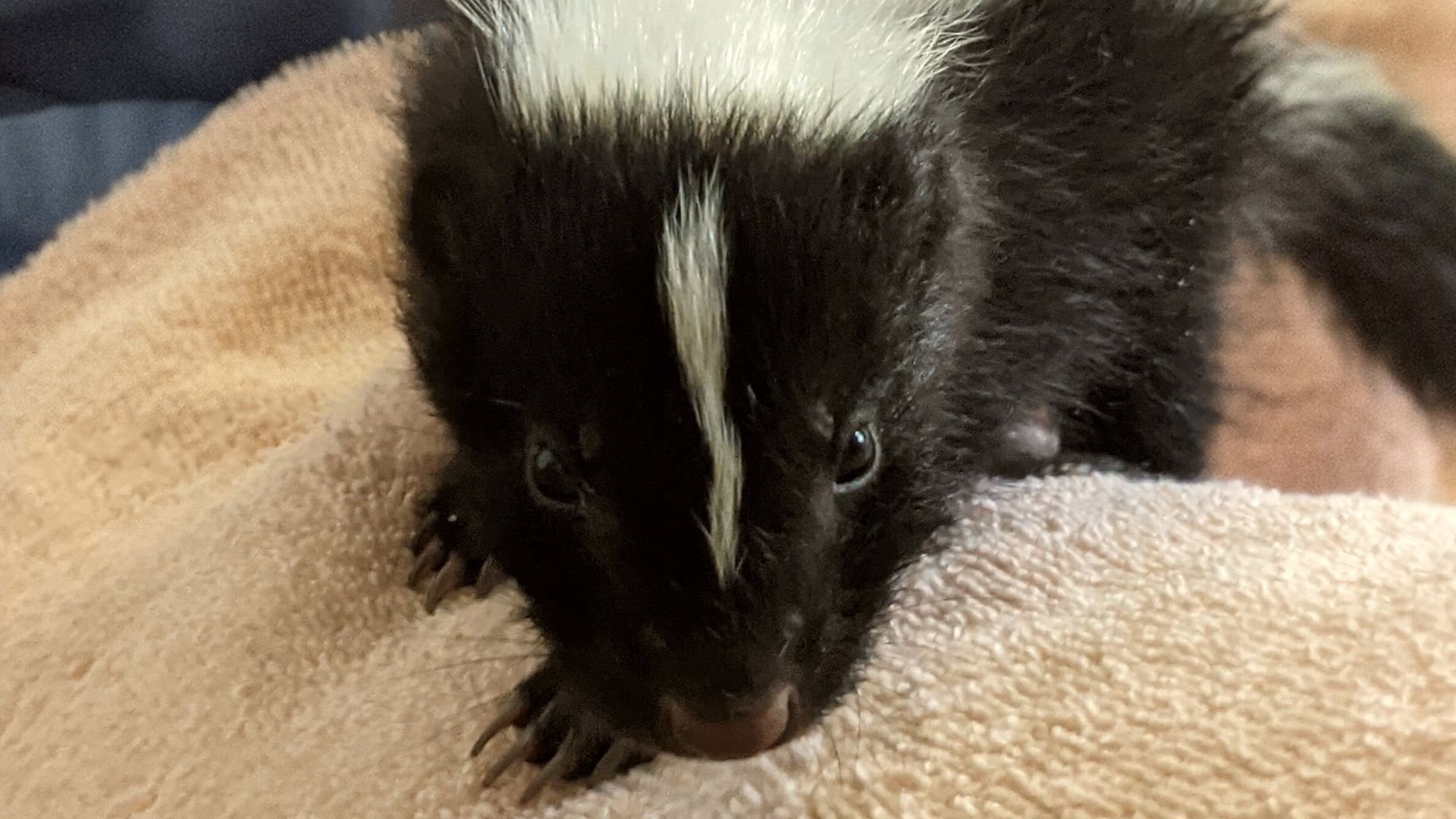What to do if you find an injured or orphaned skunk
About Skunks
Skunks are best known for their distinctive black and white striped fur and tendency to spray predators with a strong acidic musk from their anal glands. They are nocturnal and eat a variety of foods, including eggs, young birds, fruits, berries, and vegetables.
They den under porches or sheds in the spring and have 5-6 pups, which are weaned at 6-7 weeks of age. The male skunk does not help raise the young, and the family leaves the den area shortly after the pups start following the mother on nightly hunting trips. The young disperse on their own in the late summer or early fall to find a place to hibernate for the winter.
Encountering Skunks
If you encounter a skunk, it is important to remain calm and avoid startling the animal. Despite their smelly reputation, skunks are actually very shy animals and will only spray when startled or threatened.
The first thing to do is to give the skunk plenty of space. Back away slowly and try not to make sudden movements or loud noises. If you have pets with you, keep them on a leash and move them away from the skunk as well.
If the skunk has not sprayed, you may be able to slowly move away without incident. If you do get sprayed, there are several home remedies that may help neutralize the odor. These include washing with tomato juice, vinegar, or a mixture of hydrogen peroxide, baking soda, and dish soap. It is important to avoid rubbing the affected area, as this can spread the odor.
If skunks have moved into your porch or shed, it’s recommended to leave them undisturbed until they move on. If you need to remove the skunks, confirm if there are babies, and if not, sprinkle flour around the entrance to check for tracks and then close up the entryway. If there are babies, put up lights and play loud music to encourage the mother to move the young ones out. Do not close the hole with young in the den.
Skunks in trouble
If you find an injured or orphaned skunk, it is important to remember that skunks are wild animals and can be dangerous if mishandled. However, there are steps you can take to help the animal while minimizing the risk to yourself:
If it’s a baby, wait to see if it finds its den again or if the mother returns. If you are certain the mother will not return, you can try placing an upside-down laundry basket over them or try to catch them and put them in a box or pet carrier.
Contact a licensed wildlife rehabilitation center ASAP. They can provide advice on how to safely transport the skunk and where to take it for care. Do not attempt to handle the skunk yourself unless completely necessary, as they can spray or bite in self-defense.
If you NEED to move the skunk, it is important to wear gloves and use a thick towel or blanket to gently scoop it up. Make sure to cover the animal’s head with a towel to minimize its stress. Place the skunk in a small pet carrier with a towel inside for warmth.
Do NOT offer the skunk any food or water, as this can cause further injury or stress.
It is also crucial to keep the skunk away from pets and children, as they may try to approach or play with the animal. Skunks can carry diseases such as rabies, so it is important to take precautions to avoid any potential exposure.
More info on skunks
“Skunk Natural History,” Living Sky Wildlife Rehabilitation
“What To Do If You Encounter a Skunk,” Varment Guard Wildlife Services
“I found a Skunk, what should I do?,” All Things Wild Rehabilitation

